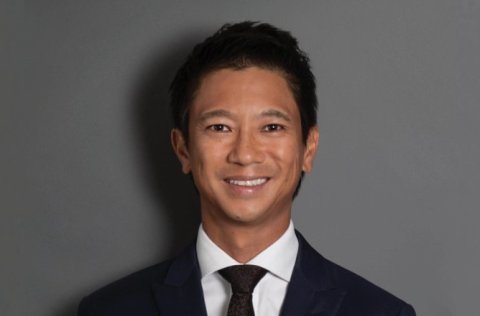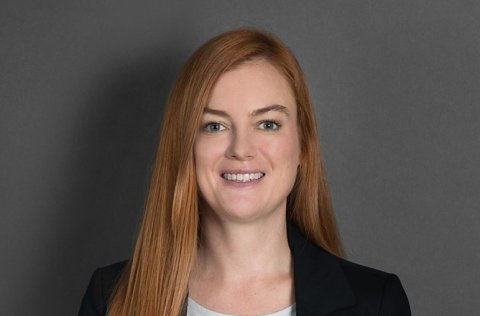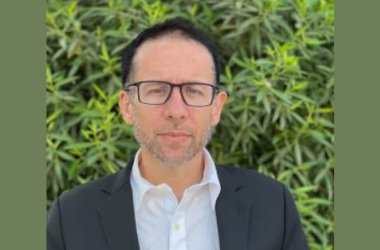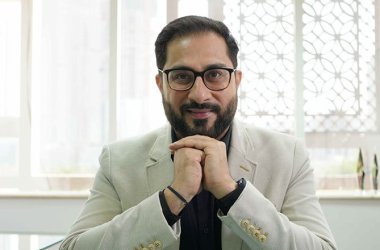CNME Editor Mark Forker secured an exclusive interview with Gregory Man and Jessica White from international law firm Bird & Bird, to learn more about the services they provide, how the regulatory environment in the UAE appeals to investors looking at disruptive trends such as NFTs and crypto assets – and the rules and regulations that are required to drive the new concept of the Metaverse across the region. 
CNME were delighted to be given the opportunity to speak to Gregory Man, partner at Bird & Bird and Jessica White, who is an associate at the legal firm.
The pair specialise in financial regulation for both traditional and digital asset types in the Middle East, and have a particular focus on technology, payments and the FinTech industry in the UAE.
In what was a candid and extremely insightful and informative exchange, the legal experts kickstarted the conversation by attempting to give our readers a better overview of what Bird & Bird does.
According to Gregory Man, technology is firmly infused and embedded in the DNA of the legal firm.
“Bird & Bird prides itself on being one of the leading advisors to organisations being changed, or disrupted by technology and the digital world. We have a very straightforward focus, compared to a lot of other firms. For us technology really is firmly embedded in our DNA,” said Man.
As aforementioned above, the pair have been tasked with the responsibility of leading the finance and financial regulation practice in the Middle East region, which encompasses the burgeoning FinTech space as well.
He said their focus on nascent technologies and new concepts such as the Metaverse was a ‘natural progression’ of the evolution of the services the company provides.
“We are one of the leading intellectual property firms in the world, and always have been – and stemming from that our focus on technology. The digital world has been a natural progression for us. In Dubai, we’re a much smaller and more focussed firm than a lot of the larger firms and that gives us a distinct advantage,” said Man.
In addition to this, Man revealed that the company does cover the entire Middle East region, but its main base was in Dubai.
Bird & Bird has a broad portfolio, but Man acknowledged that an important focus of Man and White’s practice is financial regulation.
“Given the financial regulation aspect of what we do, the FinTech ecosystem is a key priority for us. However, if you look at the way technology is pervading all areas of the economy then almost inevitably that has resulted in us advising a lot of other organisations across sectors, who are also looking to deal with things like payments. Our practice has also naturally evolved into advising on NFTs, crypto and blockchain. When you consider Bird & Bird’s client base of technology clients, then a lot of that work finds its way to us. The FinTech space is a big focus area for us, but I think the practice is a lot broader than that,” said Man.
There has been a huge upsurge in investments in cryptocurrency, virtual assets and NFTs globally, but following the high-profile FTX crisis, investor confidence has plunged.
However, White believes that the regulatory environment in the UAE is a huge reassuring factor for potential investors in digital assets like NFTs and cryptocurrency.
“When you look at investor confidence, one of the things they will consider is how regulated the marketplace is. I think that the breadth of regulations that are in place in the UAE gives the jurisdiction a great advantage. The DIFC launched the 2nd phase of their virtual asset regime last year, and those types of regimes help to build investor confidence. But of course, when you have big scandals like the collapse of FTX then it’s only natural for investors to be wary and reluctant. The UAE is in a much better position than some other jurisdictions, where regulatory developments in this area are sometimes slower to develop,” said White. 
Man, briefly added that in terms of some of the clients he has dealt with in this space, the consensus among them was the industry as a whole will come out the other end stronger , and that more regulation is welcome.
“I think it’s fair to say that you’ll find people and businesses who have had their fingers burnt by crypto and NFTs, but of the players we advise, many of them are heavily invested in the technology and the market, and are here for the long run. The players that we advise are of the firm belief that the industry will emerge stronger and better at the end of it, and I think many of them welcome the fact that it may lead to more regulation – and I think what a lot of our clients and prospective clients like about the region is the fact that regulators in the UAE have really embraced the challenge,” said Man.
White pointed to the FinTech Accelerator Programme launched by DIFC, as an example of what can be achieved with sensible and open regulation.
“The DFSA is a great example of an excellent regulator. They launched a progressive and practical FinTech Accelerator Programme, that served as a perfect illustration of a regulator that is looking to determine the new innovative technologies that are emerging, whilst considering if those new technologies are going to be beneficial for consumers, and if they would be in compliance with current regulations in a regulatory sandbox. If they do not meet the compliance requirements, then the regulator can review ways it could update regulations to reflect the current technology that’s going to benefit consumers in the end. So I think that is a very different way to look at regulatory relationships compared to other jurisdictions, who adopt a rigid stance of, if it’s not in our rules then you can’t do it. The FSRA in the ADGM is another similar example” said White.
We then moved the conversation on to the topic of the Metaverse, which has dominated the tech landscape over the last 12 months, and has been described as the future of the internet.
However, in terms of the rules, regulations and frameworks that need to be decided in order to accelerate this concept into a reality, Man highlighted that the fact there was no clear definition on what the Metaverse is, makes it difficult to regulate.
“I think what everybody needs to bear in mind and consider with all these discussions around the Metaverse, is that there still isn’t one clearly accepted definition of what the Metaverse is. People are
talking about the concept in a way that would you make you think it is already out there, but it is still developing. I think there has been a greater development in terms of the idea of what it potentially will be, but there still isn’t a clear definition, or a generally accepted consensus as to exactly what it is. Some of our clients have clear ideas as to where the potential lies, and what it could be, and I think the perception that it is in the hype phase, is probably a valid one. However, I do think there is so much interest in it primarily because of the huge potential around what the Metaverse could become,” said Man.
White pointed to the Dubai Metaverse Strategy that was launched in 2022 which aims to turn Dubai into one of the world’s top 10 metaverse economies as well as a global hub for the metaverse community, as a clear sign of the UAE’s intent, and believes that the whole concept is becoming a little more tangible due to the progress that is being made.
“The Dubai Metaverse strategy was what prompted us to include the metaverse as one of our Tech Predictions for 2023, and I think it is very interesting to see an initiative like that, and observe from afar the progress that has been made in that time. Now, I’d imagine there has been a lot more progress behind the scenes than has been published, which is quite typical with governments all over the world. However, when I sat back and had a think about the key markers, you can see there have been some definite steps forward including the Dubai Metaverse Assembly report, and I feel like the whole concept is becoming more tangible now in terms of what the overall goals are,” said White.
White also revealed that the Government of Dubai Legal Affairs Department conducted a day of training for lawyers in the UAE in late 2022, about the legal regulation of the Metaverse.
“There were over 2,000 lawyers in attendance on the webinar to discuss the regulatory focus around the Metaverse, and to examine whether or not our current laws, or regulations are going to be fit for purpose, so it’s definitely front of mind with the Dubai government. We’ve also seen the DIFC launch their Metaverse Accelerator Programme, and that is designed to attract leading global startups and provide them with an opportunity to build proof-of-concepts for government and non-government institutions, and to pitch these to the programme sponsors. However, in the background, like I noted earlier with their FinTech Accelerator Programme, the DIFC have publicly stated that they will be drafting guidelines for the Metaverse, which I think will be directly informed from the discussions that they have obtained from the new players looking to enter the market here,” said White.
In terms of the challenges that exists in regulating the Metaverse, both White and Man stated that it will be an ongoing process.
“I think the initial challenge is going to be assessing which current regulations that apply in the real world are already fit for purpose in the Metaverse, and which ones aren’t. However, I don’t think this is a question that initially anyone can answer, and instead will be an ongoing process. We can already see intellectual property and legal battles going on concerning the Metaverse, so that is going to make regulators reflect on how the courts will determine some of the disputes and whether that is appropriate as the Metaverse develops going forward. I don’t think any regulator, whether it be in the UAE, or anywhere else in the world will want to recreate a wheel that already exists and is fit for purpose, so I think regulators will focus on that assessment process and looking at key areas of focus around things like privacy, digital identity and cybersecurity,” concluded White.





